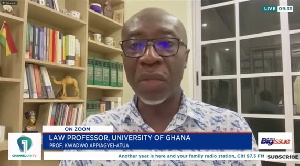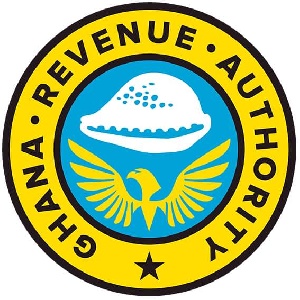- Home - News
- Elections 2024
- News Archive
- Crime & Punishment
- Politics
- Regional
- Editorial
- Health
- Ghanaians Abroad
- Tabloid
- Africa
- Religion
- Photo Archives
- Press Release
General News of Saturday, 26 April 2025
Source: www.ghanawebbers.com
Chief Justice removal process too opaque, lacks transparency – Prof. Appiagyei-Atua
Professor Kwadwo Appiagyei-Atua from the University of Ghana has raised concerns about removing a Chief Justice in Ghana. He described the constitutional processes as opaque and lacking transparency.
Speaking on The Big Issue on Channel One TV, he highlighted weaknesses in Article 146 of Ghana’s Constitution. These weaknesses undermine fairness, especially regarding Chief Justice Gertrude Torkornoo's ongoing proceedings.
He stated, "The whole process is opaque, and transparency is lacking." A petition may be received without the accused knowing its content. This limits their opportunity to respond.
Prof. Appiagyei-Atua criticized the Council of State's role as largely symbolic. Its advice to the president during this process is not binding. He said, "This makes it a mere formality."
He compared this to the removal process for other Supreme Court justices, which involves the judicial council. The judicial council is more representative than the Council of State.
In Nigeria and India, advice from their judicial councils is binding unless justified otherwise by the president. However, Ghana lacks this safeguard with its Council of State.
He also discussed a 5-member committee appointed by the president to investigate cases against justices. While he trusts the president's fairness, he noted that too much power rests with them.
The committee's appointment could reflect political bias if perceived initially. Lastly, he pointed out that there is no appeal process for a chief justice in Ghana.
In Kenya, however, a chief justice can appeal decisions made by such committees. The composition of those committees also involves the judiciary council there.
These factors highlight significant weaknesses in Ghana’s constitutional processes for removing a chief justice.











